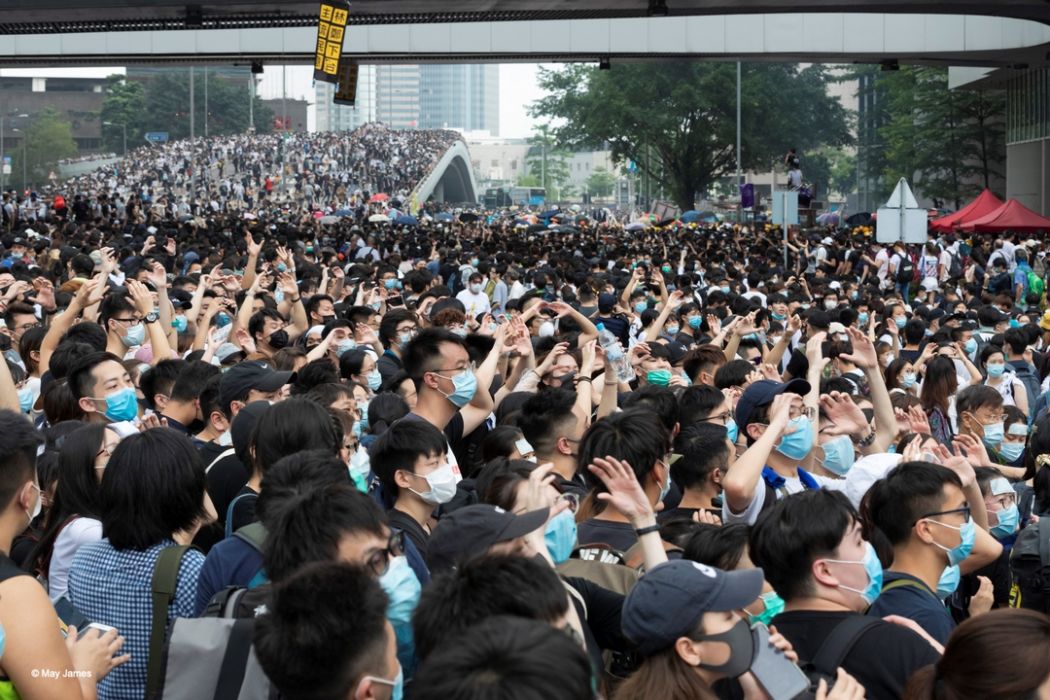Chief Executive Carrie Lam has said she felt there was “something at work” behind the West’s interest in the Hong Kong protests though she did not have conclusive evidence.
Lam was at the World Economic Forum in Davos, Switzerland, this week attending several events. In an interview with Geoff Cutmore from US television network CNBC on Tuesday, Lam was asked who she thought might be backing demonstrators.

“I have no conclusive evidence to answer your question, but it is for all to see that what has happened in Hong Kong on this occasion have attracted disproportionate commentary from Western media, from overseas governments and politicians,” she said.
“At the same time we have seen riots taking place in other parts of the world, but the disproportionate reporting of Hong Kong has been assessed by an agency on fair reporting in the United States,” she said, referring to a report by US media watch group Fairness and Accuracy In Reporting, issued last December.

“And I do feel that perhaps there is something at work, although I said there hasn’t been any conclusive evidence, so there is a bigger picture other than the domestic situation,” she added.
Large-scale protests have continued since June last year. Initially against a now-withdrawn extradition bill, which would have enabled fugitive transfer to mainland China, protesters’ demands have expanded to include the unconditional release of all those arrested in connection with the unrest, retraction of the “riot” characterisation, an independent investigation into police behaviour, and universal suffrage.

Speaking to CNN’s Fareed Zakaria on Wednesday, Lam was asked if she would be able to agree to any of the protesters’ demands.
“For the government to provide a political response because the protesters or these rioters wanted to see a particular response, [it would] not be a very prudent way of ensuring Hong Kong’s future and public interest,” Lam said in response.
She also said she has faced pressure from members of the anti-protester camp, saying that she should tighten restrictions on journalists.

“[They said] I should make sure that everybody comes to my office or the police office for an identification document before they can go down to the site to report. I’d rather not. Because that would destroy or undermine one of the institutional strengths in Hong Kong – that is, the freedom of the media,” she said.

Meanwhile, financier and philanthropist George Soros, an advocate for “open societies” that provide its citizens with broad liberties, said at Davos on Thursday that dictatorships do not know when or how to stop being repressive upon succeeding which, in turn, caused revolts.
“We see this happening today all around the world. The most successful rebellion so far has been in Hong Kong, but it comes at a great cost: it may well destroy the city’s economic prosperity. There are so many revolts going on in the world that it would take too long to examine each case individually,” he said.
“Observing this torrent of rebellions, I can venture a generalisation about the ones that are likely to succeed. They are typified by Hong Kong. It has no visibly identifiable leadership and yet it has the overwhelming support of the population.”
